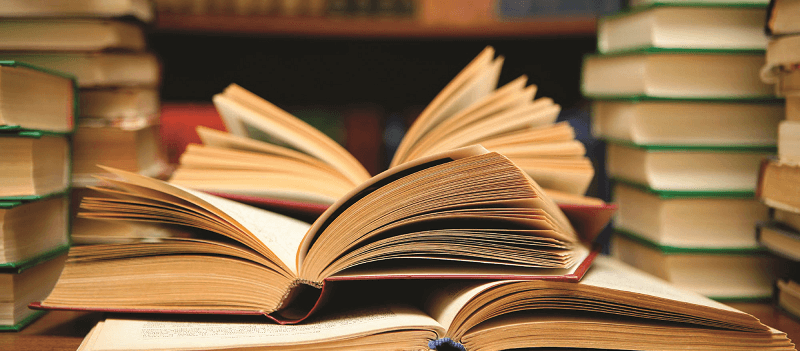Umapagan Ampikaipakan (Uma) wears many feathers to his hat. The literary critic and radio deejay who is best known for his biting wit and distinctive views on Malaysian politics, as well as his obsession with the written word, has long established himself as a palpable presence in the Malaysian psyche.
The bubbly 34-year-old bachelor currently co-hosts BFM89.9’s drive-time show, The Evening Edition, and hosts Bookmark, in which he talks about all things book-related on the radio station.
An avid fan of the movies, Uma, who is trained in engineering and has a Master’s degree in philosophy and law, is also a film critic with Uma + Joe at the Movies, and a pop-culture columnist for #edGY.
When he’s not reading or writing, Uma runs The Cooler Lumpur Festival, Kuala Lumpur’s yearly gathering of literary minds and thought leaders and Asia’s first and only festival of ideas.
Here, BFM 89.9’s Uma shares his love for the literary trade, his unique spending habits, and tried-and-tested investment methods with iMoney’s senior writer, Fiona Ho.

Our senior writer, Fiona Ho recently hung out with Uma at the BFM office.
Let’s start with some silly questions that my editor wanted me to ask, what makes you happy?
Books make me happy. I read everything and anything. Anytime I’m stressed out or having a bad day at work, I can spend hours at home just getting lost in a book and be happy.
I read everything and I go through about five books a week on average. I’m always reading more than one book at a time.
Any favourite authors at the top of your head?
I have lots actually. It’s very hard to ask someone like me to name a favourite author. For contemporary authors, I like Michael Chabon, for classic, Graham Green. I also like Raymond Chandler, who writes detective fiction. I will always give you like a list of top 10 but even that constantly changes.
Does money make you happy?
As a means to an end, yes. I mean, most people would tell you that money is not important, I’m not one of those people.
However, the accumulation of wealth does not make me happy. I’m not the kind of person who enjoys watching money grow in my bank account, but money is very important and I think it is what you do with your money that makes you happy.
How has your childhood affected your attitude towards money?
One thing that was very apparent from my childhood was the notion that money is merely a means to an end. It is not a be-all and end-all. My siblings and I weren’t under the illusion that we didn’t need money. Because in reality, we need money, we can’t survive on fresh air alone (and all that stuff).
We were taught that it was important but we weren’t taught to horde it. Also, we were taught that if you want to live a comfortable life, a life where you can enjoy the things that you like, the only way to get that is to work hard for it.
Are you more of a saver or a spender?
I would say I’m more of a spender, but I do have savings for times in need. For example, I have a separate bank account for savings, and I also have investments and a private retirement fund.
What do you spend most on?
Books (laughs). I think I would have a lot more money if I didn’t spend so much on books. They’re stupidly expensive.
I spend an average of RM600 on books in a week, so if you want extravagant spending, that’s that. It’s because I get through books really quickly. The RM1,000 tax deduction they have on books is worthless to me. It’s gone within half a month.
Besides books, I spend quite a lot on “toys”. I enjoy new cutting-edge technology like new phones – they tweak my interest. I also buy Lego from time to time.
But in that way, I don’t spend money on clothes until I absolutely need new clothes. I don’t spend money on booze and I don’t spend money on nice cars. I’m happy driving a car until it falls apart.
What was your first job and how much were you earning? (If you don’t mind sharing.)
My first job was with a semi-governmental organisation called ISIS. No, not THAT ISIS. (laughs) It’s the Institute of Strategic and International Studies. It’s a very unfortunate acronym but to be fair, this ISIS has been around a lot longer.
I joined them in 2005 as an analyst and was earning about RM1,800-ish, but after EPF and Socso, it was really just about RM1,700. It was below the tax bracket, so at least I didn’t have to pay tax but it would be very difficult to live on if I didn’t live with my parents at that time. At least I didn’t have to worry about rent or food.
But I did pay for my car instalment and petrol, and they made up the bulk of my expenditures.
What was your biggest indulgence when you first started working?
It was a laptop. I needed a new laptop. It literally cost a month and a half of my salary then, but I was very happy because it was the first time I actually made a big-ticket purchase with my own money. I’ve had odd jobs before, but this was my first “real” job and it was a big deal.
I had to put aside money for six months to buy it. It was a really crappy laptop too. I think it was an Acer. It was plastic and crap, but I was so happy.
How has your finances changed as you became more financially successful?
I think you have more to save. We work in radio, it’s not as if you become a millionaire working on radio. But now I have a little more for travel, more to put aside at the end of the month, and do something nice with it.
I mean, when you’re making RM1,700 you’re living pay cheque-to-pay cheque so by the end of the month, you’ll be lucky to have RM50 in your bank account.
If you want to travel, you have to save for a long time. A flight to London back then was about RM5,000 and if that didn’t kill you, the exchange rates would.
As you make more money you can make plans for the future. You can think about putting a down payment for a mortgage, or even other investments.
What is the best financial decision you’ve made so far?
I think investing in certain properties. I bought my first property in 2004 before I started working. It was an apartment right opposite KLCC. Prices were low at that time and it literally went for about RM55 per square foot (the place was just under 1,000 square feet).
Years later, I sold it for about RM100 per square foot, it covered everything I paid for and I made a fat profit. I haven’t been that smart since, though. (laughs) I think when I was younger, I had more interest. Now I’m, like, lazy la….
Tell us more about your current investments.
At this moment, aside from the house I live in, I have an apartment unit in Damansara Heights, which I bought because I knew that the MRT station would be right next to it. The whole area is currently being developed, and it looks like it’s set to become a hub with good public transport links – this is something that has not played a role in property in Malaysia but I think it is becoming an important factor.
I didn’t buy it to flip it, I’m hoping to keep it. I like the area because I actually live there and it’s very central – like 15 minutes to KLCC, and 15 minutes to PJ.
It has been tenanted since late last year. Rental yield has not gone up but I have a feeling that it will in a year or so, once the constructions surrounding it come to completion.
Besides property, do you have any other types of investments?
I invest in a private retirement fund and also, a tiny amount in the stock market. I actually just recently opened up a trading account and it’s funny how it started – BFM is a business station, so our boss insisted that all of us open a trading account.
Last year, the company gave us all a small amount to do it, as part of our yearly bonus, and our boss was like: “You won’t get your bonus until you do it.”
I made a bit of money when I bought MAS shares when it was very, very low. I bought it when it was 15 sen and I sold it at 22 sen. Now, occasionally, I just put some money here and there.
Also, if you count vintage books. I buy books when I travel and I love dropping by vintage bookstores.
Vintage books can fetch anything from US$100 (RM360.95) to a few thousand, depending on the book’s age, and the value does go up with time and with a certain amount of fame. If they make a movie out of the book, for example.
I have first editions and signed editions, including one of the very early series of Star Wars novels, which was signed by the author. I currently have a library of maybe 6,000 books and I’m sure my collection is worth quite a bit but I don’t think I would ever sell them.
What is your biggest financial drain currently?
I think it is a combination of things – my mortgage (because the rent I’m getting doesn’t actually cover the instalment), my car loan and health insurance.
I come from a family of doctors (my dad and my sister are both doctors) and I’ve seen how people get into deep trouble when they get an illness and stuff, so I pay a lot of attention to health insurance. I bought my insurance from the UK while I was studying there, but I’ve raised the premium along the way.
I think you should read your plans very, very carefully. Insurance companies are the worst, they really are – they will find 100 ways to screw you up and not pay you so you really have to read the fine print.
I think you have to be very clear to them when you take it up. You need to specify what you want and take it when you are younger, when there is nothing wrong with you. Also, when you are speaking to someone, get everything in writing.
I pay about US$300 (RM1,082.76) for my health insurance every month, but it covers me globally (except for the United States), and it’s one of those no questions asked thing. If I’m sick they would just treat me and fix me.
Do you give to charity?
Yes, I give both money and time to charities in Tamil schools and I help out charity organisations.
Do you know how much you have in your bank account?
Right at this minute? No, I don’t. (laughs)
What is your financial priority for the next five to 10 years?
I would like to start saving more. I hope to have a family someday and I hope to put some money aside for that. If I get married, I’d need money for the wedding – a lot of people get stressed out from weddings because of money. I don’t want to be one of them.
I would like to continue with my current investments in property. The next property I buy, I would like it to be something “fun” for me. Maybe in Penang or Janda Baik, where I can buy a small piece of land to do my own farming on or a holiday home by the sea or something. I’m not financially secure enough to do that yet, but hopefully in the next five years.








